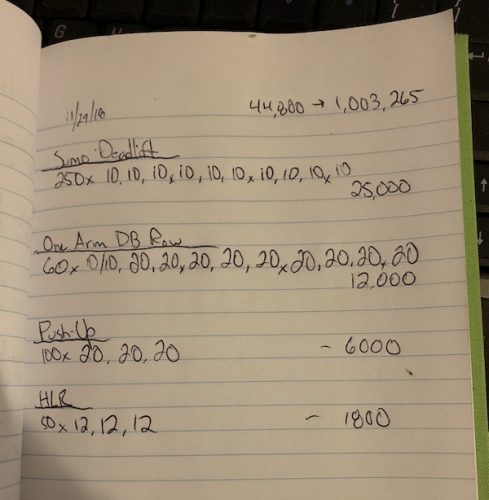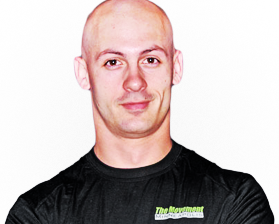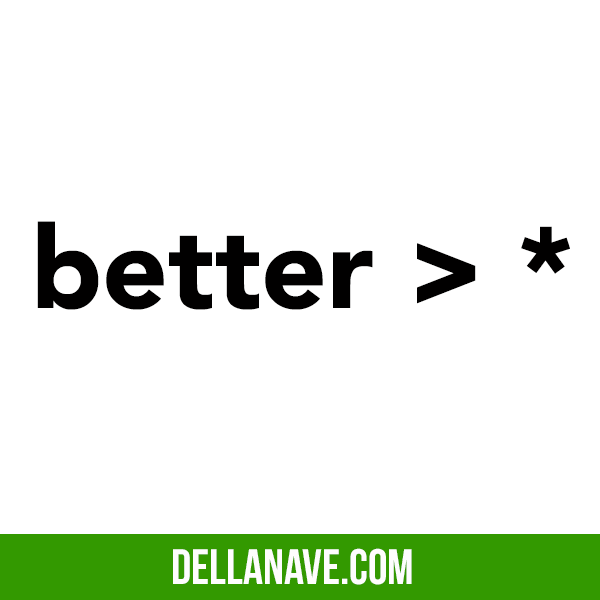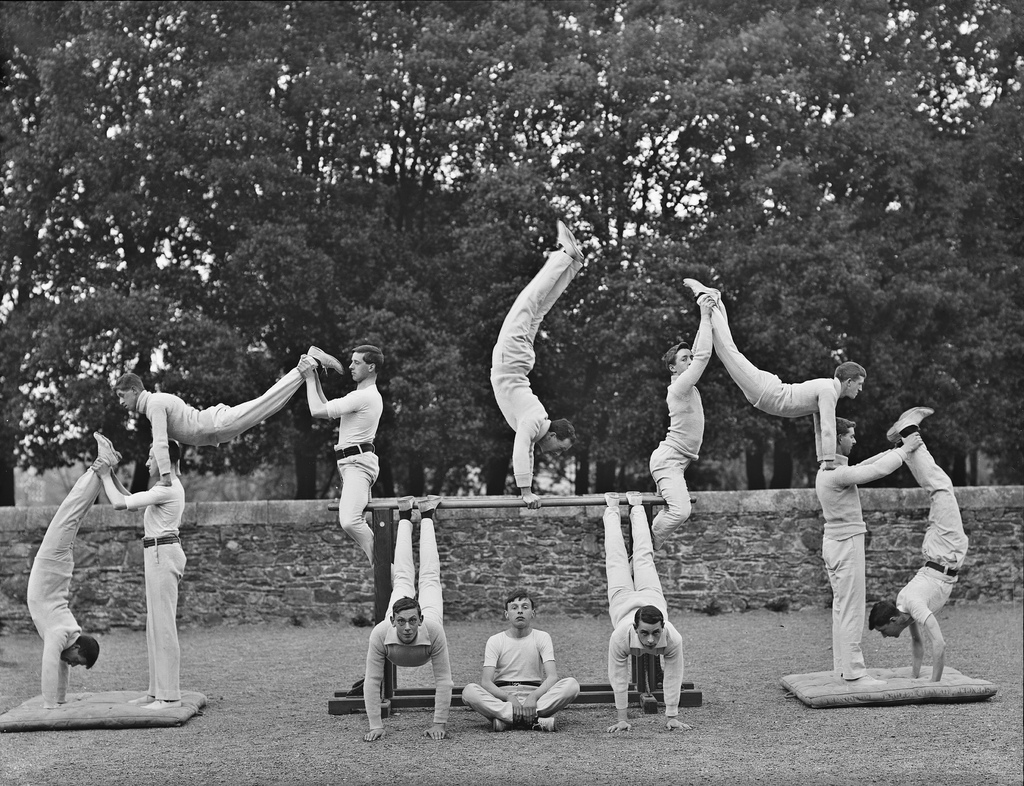
It’s hard to believe that it’s been almost a decade since the first time I completed the Million Pound November challenge. I honestly had no plans to do it this year, wasn’t really ramped up and ready in terms of volume, and wasn’t even convinced I’d be able to finish it when I committed myself to it. Would I be able to do a high stress, long-term challenge that I last did when I was under 30?
Quick recap in case you have never heard of MPN. The goal is to lift a million pounds of volume in 30 days, ideally November. This can be an individual challenge, or a group effort like we do it at The Movement Minneapolis. For perspective a typical strength or circuit workout tends to be in the 10-15,000 pound range. So you’re looking at doing two to three times typical volume every single day for a month. It’s eminently possible, but it’s not easy.
 My hope whenever someone undertakes a challenge is that they’ll learn something from it, regardless of whether or not they actually complete it. Million Pound is one of the favorite programs we run Throughout the challenge I try to foster this by asking people what they’re noticing, how they’re feeling, what seems different, and so on.
My hope whenever someone undertakes a challenge is that they’ll learn something from it, regardless of whether or not they actually complete it. Million Pound is one of the favorite programs we run Throughout the challenge I try to foster this by asking people what they’re noticing, how they’re feeling, what seems different, and so on.
This time around I noticed some things that were distinctly different than the last time I completed it. I should note, I’ve only really committed to it twice, and completed it twice. There have been fits and starts over the years where I didn’t dedicated myself to it, but I never tried and failed due to not being able to complete it.
Due to a week of travel smack in the middle of the month, I was forced to compress all of my training into two bouts of twelve, and eleven days consecutive days with a gap in the middle of six days with only one training day. So basically 23 total training days in two streaks.
This was, in a word, not ideal.
By the end of each of the two streaks I was feeling almost insurmountable fatigue and lack of desire to train. Under any other circumstances I would have taken days off before I even got to that point, but it was interesting to see how far I could actually keep going, and continue to find things that tested well via biofeedback. I don’t remember feeling that sort of fatigue last time, which I don’t know if I can attribute to not taking days off along the way or to simply being almost ten years older.
Perhaps the only thing that kept me healthy was that I respected the significantly increased need for sleep, and I made sure to get to sleep early, and take a mid-day nap if necessary.
So the big lesson for me was that if I’m pushing volume to the limit, about five days is where things start going downhill.
Whether or not you succeeded is irrelevant in this. What did you learn?



